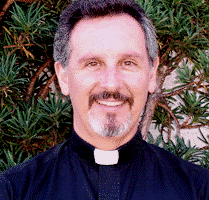No computers… No phones… Yet what powerful business tips are found in the life of this 16th Century saint!
As we scramble to daily improve our FaceBook and Twitter sales and awareness outreach, it’s difficult to imagine that anything—or anyone—from the 16th Century could reveal powerful business tips for success today. But the life of Saint Charles Borromeo is a remarkable example to the contrary.
An unlikely saint
By all accounts, Saint Charles Borromeo (1538-1584) should not have been a saint.
Born into a life of privilege and wealth, he could easily have led a life of ease. As a cleric, he could have used his family connections to his advantage, never having to work or seriously engage in the efforts of service or spirituality.
Whereas most saints become so through want and difficulty, Charles would find his sanctity by using well and wisely what was his by birth and the providence of God. (story continues below content sponsor)
He even used well and wisely a speech impediment from which he suffered since childhood. This impediment caused some to consider him unintelligent. Yet he did not use this as an excuse to avoid responsibility and excellence in service of his God. He did not shun public engagement. Instead, he spoke to large crowds in a quiet voice. Somehow his words were always effective.
The model of a holy business professional
In many ways, St. Charles Borromeo exemplifies a holy business professional.
Let’s take a closer look at his life…
With so much wealth and privilege to distract him, Charles Borromeo kept his eyes focused on Christ and His Church. And no where else. This keen focus affected everything he did. Everything.
Borromeo’s prayer life and personal mortification helped him to remain detached from the temptations that could have derailed him. His prayer life also helped his mind and kept him organized, as prayer is often known to do.
He surrounded himself with trustworthy and capable people, and was courageous in the face of opposition and violence. He was single-minded in his devotion to our Lord and our Lady, and was a consummate man of the Church for the salvation of souls.
As mentioned earlier, wealth and privilege was abundant for this young saint. Consider Borromeo’s family. The Borromeo family wielded power through large financial holdings. His father, Gilberto II, was the Count of Arona and his mother, Margherita, was a member of a powerful Italian family, the Medici. Margherita’s younger brother, Giovanni (Borromeo’s uncle), would become Pope Pius IV.
Because of the way the Church was organized then, the Borromeo family had the rights to the Benedictine Abbey of Saints Gratian and Felinus in Arona.
At the age of twelve, Charles became a cleric by receiving the Minor Order of Tonsure and was made the Titular Abbot of the Abbey, receiving a monthly stipend which he used for his college study of civil and canon law.
Financial and Operations Challenges
Although Borromeo struggled with budget problems like all college students, it wasn’t because he had too little money. Instead, he had too large a household to maintain (the entire monastery)!
When his father died in 1558, Charles—while finishing his thesis and graduating from the University of Pavia—was put in charge of the Borromeo family business.
A year later, in 1559, his uncle was elected Pope. The new Pope Pius IV called his nephew, Charles, to Rome. At this point in his life, Charles Borromeo could have left the clerical state and enjoyed a life of wealth, but Pope Pius IV recognized his nephew’s skills and put him to work.
Humility
Throughout his life, and especially while serving his uncle Pope, Charles received high rank and honors beyond his years and without any prior experience. Most young men would swell with pride and vainglory. Not Borromeo! Charles knew his duty and took care of a host of tasks that no one person should ever be given.
Onslaught of Leadership and Management responsibilities
In a period of two years, Charles Borromeo was named Cardinal-Deacon of St. Martino-ai-Monti; the Administrator of the vacant Archdiocese of Milan; the Papal Secretary of State; the Cardinal Legate of Bologna, Romagna, and March of Ancona; the Protector of Portugal, the Low Countries, and the Catholic cantons of Switzerland; the Protector of the Franciscans, Carmelites, Knights of Malta, and others; the temporary administrator of the abbeys of San Silano, Santa Maria, San Gallo, San Stefano, and another in Flanders and Portugal; he instituted the Vatican literary academy of clergy and laymen; founded a college at Pavia, and was temporarily the Governor of Ancona and Spoleto. He was also ordained a Deacon in 1561.
All that, in two years!
Was there such a lack of able-bodied clerics in Rome at this time that the Pope had to give this many titles to his nephew? Or was it more a matter of finding hard workers?
Perhaps if asked, at the time, how many people worked at the Vatican, Pope Pius IV would have responded as it is rumored Pope John XXIII did, when asked the same question by the media. Pope John XXIII answered: “about half.”
Modern books of business management will indicate that no one person should oversee more than seven individuals or duties at a given time. Anything more than that would not allow for proper supervision.
Apparently Pope Pius IV never read any business management books, and one did not usually say “no” to the Pope, not even if one is related to him! And so, somehow, Charles was able to perform all the tasks assigned him, oversee all the large organizations mentioned earlier, and still have time for prayer, study, the occasional sport, and time to learn how to play the lute and violincello.
Did he have a large staff to which he delegated most of these functions? Apparently so, but the biographies are unclear. Butler’s Lives of the Saints (1926, vol. 4, p. 256) states, “It is marvelous how much business Charles despatched without ever being in a hurry, by dint of unwearied application and being regular and methodical in all that he did.” Amen to that!
His remarkable role in the Council of Trent
In 1562 the saint’s workload increased even more when he helped to re-engage and resume the stalled Council of Trent. The important Council had stopped 10 years earlier.
Almost single-handedly, Charles Borromeo managed the volumes of paperwork, letters and documents created during the sessions, and Butler’s recounts that “he was the master-mind and the ruling spirit of the third and last period [of the Council].”
Once the Council was concluded, Pope Pius IV named Charles to commissions, to implement the decrees of the Council, to compile a new Catechism (many parts of which Charles wrote himself), to the reformation of the Missal (the prayers used at Mass), the reformation of the Breviary (the prayers clerics and religious must pray daily), and the writing of new music to be used at Mass. Mind you, Charles was still in charge of the Borromeo family business, and still held all the above-mentioned titles and offices!
Priesthood came later, against high-level encouragement to marry
Again an opportunity to leave the clerical state arose when another member of the Borromeo family died, leaving Charles as the last of the males.
Many, including the Pope, encouraged him to get married in order to keep the family name alive. But Charles was fully invested in his life of service in the Church. He asked a Cardinal friend of his in Rome to secretly ordain him a priest in 1563, which brought an end to the pressure put on him to leave the clerical state.
Since Charles was already a Cardinal, the Pope ordained him a bishop three months later. During this period, Charles also became a Prince of Orta; the temporary Governor of Terracina; an Archpriest of the Liberian Basilica in Rome; a Count of the Palatine; the Cardinal-Priest of St. Prassede; and, to keep him close to Rome, the Pope made him Legate of all Italy.
His desire to serve in Milan
Among the many titles he received, the one Charles longed for the most was to be the real bishop of Milan. This very important Archdiocese in northern Italy was one of the places he called “home.” It had not had a bishop in residence for 80 years, and was in a terrible state of decline.
Charles wanted to bring the reforms of the Council of Trent to the Church in Milan, knowing the region as intimately as he did.
He knew this new direction for the Church would bring new life to Milan and he desperately wanted to get out of Rome. Pius IV would hear none of it. But in 1565, Pius IV died and his successor, Pius V (later to be named a Saint), granted Charles the freedom to serve in a different and ruined part of the vineyard.
From 1566 until the end of his life, Charles brought law and order back to a diocese long-abandoned; the diocese of Milan.
Death attempts did not sway his resolve to reform Milan
As Bishop of Milan, Charles was received with great excitement. Even so, as with all who bring change, he was not universally loved.
There were two attempts on his life and many communities pushed back against his reforms. Charles did not have a problem using the full weight of his authority to teach, encourage, threaten and even punish those who would not obey any other way.
Charles started with the clergy, many of whom were untrained, avaricious, ignorant, or living in  concubinage. The people had long ago stopped caring when it became apparent that their priests didn’t care. But Borromeo was a far cry from these priests!
concubinage. The people had long ago stopped caring when it became apparent that their priests didn’t care. But Borromeo was a far cry from these priests!
Bishop Borromeo opened three seminaries and imposed strict laws from the Council of Trent on diocesan and religious clergy, and on reformed religious houses of men and women.
He removed from office anyone who could not be rehabilitated. He reformed his own household and diocesan staff, gave away a lot of property and money, and increased the amount of charity for the poor.
He began the Confraternity of Christian Doctrine, otherwise known as “Sunday school,” and insisted on the education of the young.
According to the Catholic Encyclopedia (1908, online), “he so organized his administration that by means of reports and conferences… his pastoral visits were productive of fruit.”
Organization and Delegation… yet dropping everything to deliver hands-on care for plague victims
He accomplished so much because he had a strong sense of organization and delegation.
In the 18 years that Charles Borromeo was Cardinal-Archbishop of Milan, he held five provincial councils and 11 diocesan synods; visited all his parishes as well as the neighboring dioceses and religious institutions; founded the Oblates of St. Ambrose, a society of diocesan priests; helped establish the English College in Douai, France; and founded two colleges and a convalescent hospital.
In 1571, he personally paid for expenses incurred from feeding 3,000 people a day during a three-month famine.
When the plague hit for two years, starting in 1576, Charles dropped all his other responsibilities and personally took care of the sick and dying. “He avoided no danger and spared no expense,” (Wikipedia), caring for 70,000 souls and, by his actions, shaming many civic and Church people who refused to assist plague victims.
The Secret to his Success
It is important to underscore that Charles Borromeo—in spite of, and throughout all of his important roles, nonetheless steadfastly lived in penance, self-denial and prayer.
His personal lifestyle did more to convert his Church than any amount of decrees from Trent.
Charles Borromeo worked to convert Protestants back to the Church and was fairly successful, again because of his credibility.
Somehow in the midst of all this, he had time to occasionally go to Rome for meetings, go on pilgrimage to various shrines, attend two retreats a year, and maintain a huge correspondence with people all over Europe. He wrote many books on a variety of subjects from church architecture to educational methods for children.
Charles died in 1584, at the age of 46. Forty-six!
He essentially had 25 years of productive time after his education. He spent seven years in Rome with his uncle Pope Pius IV and 18 years in Milan. No matter how many tasks set before him, he was apparently successful at everything he undertook. He was a classic example of a “multi-tasker.”
There are saints who were poor and saints who were wealthy. Their access (or lack thereof) to money, power, education, or any other benefit did not hinder their growth in virtue, devotion, and holiness.
Whether one is the owner of the company or an employee, or if one lives a middle-class lifestyle or has been raised in grinding poverty doesn’t matter: sainthood can be found by any who keep their eyes on Christ. 
RELATED RESOURCES:
- Article References, per Fr. Chris Heath: Herbert Thurston & Donald Attwater, eds., Butler’s Lives of the Saints, revised ed., (1926), Christian Classics, Westminster MD, 1990 reprint, Vol. 4, pp. 255-262.
————————–
Fr. Chris Heath is a priest of the Diocese of Orange, California, and has served as founding chaplain of Catholics at Work OC and pastor at... MORE »



